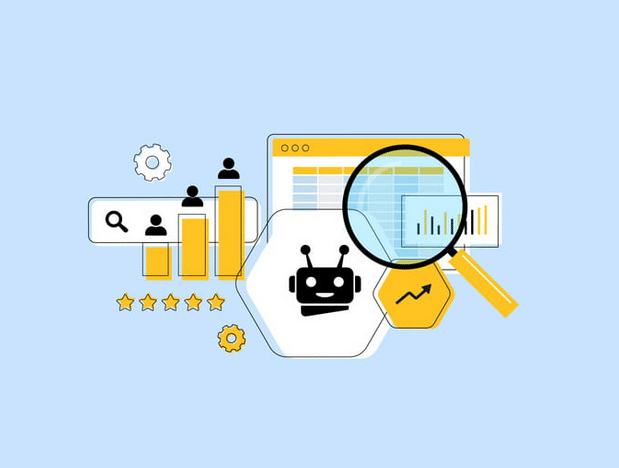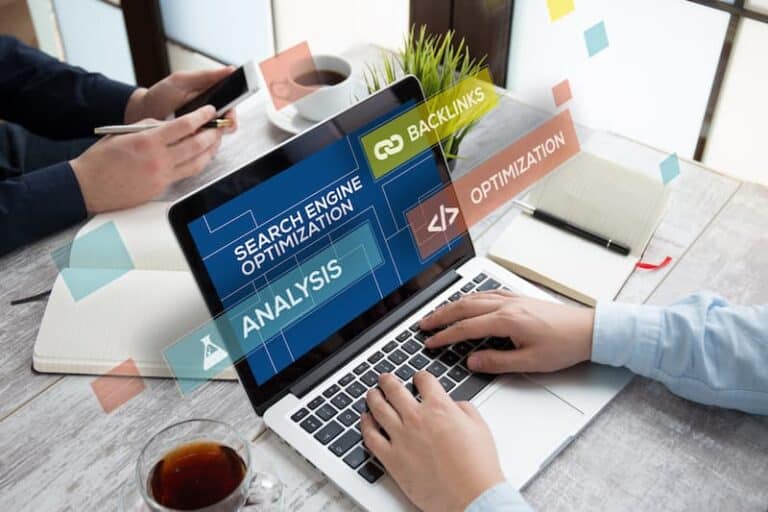AI-Powered SEO: The Top Trends Transforming Businesses in 2025

Artificial intelligence (AI) has shifted the digital marketing landscape. It has made it possible for businesses to create customized experiences, generate more content, predict customer behavior, and increase engagement.
AI-powered search engine optimization (SEO) is the application of AI and machine learning to optimize websites for search engines. It involves automating tasks, analyzing vast datasets, and optimizing content, factors that have led to its growing importance in 2025, making it the future of SEO.
This guide discusses the most impactful AI-driven SEO trends for 2025, and provides actionable insights.
Schedule A Consultation Today
Evolution of Search: From Keywords To AI Conversations
In traditional keyword-focused SEO, keywords in a user’s query are used to find text that matches it on web pages. This results in a list of ranked web pages with snippets on the search engine results page (SERP).
However, the rise of AI has changed how web pages are ranked. AI-powered search engines use natural language processing (NLP) to understand the meaning and intent behind a user’s search query and the context of a web page’s content. By understanding both search intent and content context, NLP generates direct, concise answers with rich snippets. Thus, it goes beyond keyword matching.
Consequently, it’s crucial for businesses to invest in answer engine optimization (AEO) and generative engine optimization (GEO) to be visible on AI-search engines.
AEO is a strategy that focuses on creating concise, fact-based content for direct answers on search engines like Google. GEO is the practice of optimizing content so AI models can cite or integrate it within AI-generated search results, such as Google’s AI Overviews, Perplexity AI, or ChatGPT.
Search engines are using AI to get information from multiple sources to provide users with a summarized answer. They use specific types of NLP, including large language models (LLMs), to interpret complex information and search intent to synthesize answers.
Top AI-Powered SEO Trends for 2025
Businesses are significantly benefiting from these 2025 AI-powered SEO trends:
1. Rise of Generative Engine Optimization (GEO)
While SEO focuses on improving a website’s rankings on search engines, GEO focuses on featuring and citing a website’s content on synthesized answers, ensuring a website is visible in AI-powered SERPs and chatbots.
Both strategies aim to provide relevant content to users. Being visible on AI-driven results can substantially boost SEO performance, since it eventually drives traffic to your website. You also need to create content that directly answers users’ queries to be featured in AI overviews.
You should also structure your content in a way that NLP can easily understand it. Use headings, lists, and a conversational tone. You should also add schema markup so LLMs can easily process and extract key information from your content.
2. Role of Intent in Keyword Research
AI tools for SEO are revolutionizing keyword research. Businesses can use AI in keyword research to analyze vast amounts of data to identify relevant keywords and obtain valuable metrics like search volume, difficulty, and click potential. This analysis also allows machine learning models to understand past search behavior and, in turn, predict future search trends.
In addition, businesses are moving beyond targeting isolated keywords. Instead, they are choosing topic clusters, a practice that involves creating content around a central theme. The broad topic is covered in the pillar page, and subtopics are discussed in depth in cluster pages. Topic clusters enable a website to rank for hundreds, if not thousands, of keywords, covering various user intents. AI enhances topic clustering by analyzing content, identifying gaps, and suggesting relevant subtopics.
3. AI-Assisted Content Optimization
AI tools can identify content gaps, analyze and improve content readability, incorporate relevant keywords to boost visibility, and monitor content’s performance in real time, providing data that allows ongoing adjustments.
They analyze high-ranking content’s keywords, content structure, and topic coverage to provide keyword suggestions, generate content briefs or an entire draft, and suggest improvements.
While AI makes content optimization more manageable, human oversight is critical in ensuring AI-generated content is high-quality, accurate, and aligns with brand voice.
4. Growing Relevance of Voice Search Optimization
With the adoption of AI-powered assistants like Siri, Google Assistant, and Alexa, voice search has been growing in relevance. Hence, the growth of voice search optimization. With many people now searching for information using voice search since it’s convenient, businesses should aim to appear in the answers in conversation queries.
To do this, a business needs to create conversational content, written in a natural tone using longer keywords.
Moreover, a significant percentage of voice searches have local intent. Thus, it’s important to also prioritize local SEO.
But what is local SEO?
This is the practice focused on improving a business’s online visibility in local search results. For voice search optimization, you should use longtail local keywords, encourage online reviews, implement speakable structured data, and create local content.
You should also claim a Google Business Profile (GBP) and optimize it because AI systems pull information from it when answering queries.
5. Hyper-Personalization and Predictive SEO
AI uses NLP, machine learning, and other techniques to gather vast amounts of data and analyze it. Examples of data it gathers include search history, websites visited, time spent on websites, location, type of device, and user-provided data like age and gender. AI can process these details and immediately adjust search results, ensuring a personalized experience.
Furthermore, AI-powered predictive analytics enables businesses to predict customer needs and trends. Accordingly, they can provide content or offers before a user even searches for it, improving user satisfaction.
Essential AI Tools for Your AI-Powered SEO
Below is a list of popular and effective AI tools for SEO:
Keyword Research
- Semrush: This is among the best AI SEO tools because of its outstanding features. These include Keyword Magic Tool for extensive keyword idea generation, Keyword Overview for quick, comprehensive analysis of a keyword, and Organic Research to know the keywords your competitors rank for in SERPs.
- Ahrefs: This tool has the Keyword Explorer feature to find keyword ideas, Site Explorer for analysis of competitors’ websites, and SERP Checker to know the top-ranking organic pages for a specific keyword.
Content Optimization
- Surfer SEO: Use the Content Audit feature to review content and make adjustments, SERP Analyzer to know why specific pages rank well, and Content Planner to identify relevant keywords for topic clusters and develop a content strategy.
- Clearscope: The Content Grade & Real-Time Recommendations feature measures how comprehensive and relevant your content is and suggests how to improve it. Clearscope also has Keyword Discovery for identifying high-opportunity keywords and Content Inventory to track the performance of content.
Technical Analysis
- Sitebulb: Use Sitebulb’s link analysis feature to obtain insights into internal and external linking structures to improve your link-building strategies. You can also use Accessibility Testing to identify any violations on your site and Indexability Check to identify issues like robots.txt errors.
- Search Atlas: This AI-powered SEO has a Site Auditor feature for detecting any problem on your website, On-Page Audit to identify issues impacting crawling and indexing, and OTTO SEO to identify technical issues and strategic opportunities.
Irreplaceable Role of Human Expertise for AI-Powered SEO
While AI tools are powerful, they are more effective when guided by human expertise. SEO professionals are vital for developing a comprehensive strategy, creating creative content, understanding the nuances of a brand’s target audience, and ensuring consistent brand voice and authenticity.
Levy Online has skilled SEO specialists helping businesses maximize the benefits of AI. Contact us to learn how AI is transforming the future of SEO.
Ready to boost your SEO strategy with AI-powered insights?
FAQ
Sources:
Binder, A. (2025). Generative Engine Optimization (GEO): The Future Of Search Is Here.
Paruch, Z., et al. (2024). NLP in SEO: What It Is & How to Use It to Optimize Your Content.
Reynolds, E. (2024). Voice Search SEO Practices: Optimizing For The Future Of Search.






